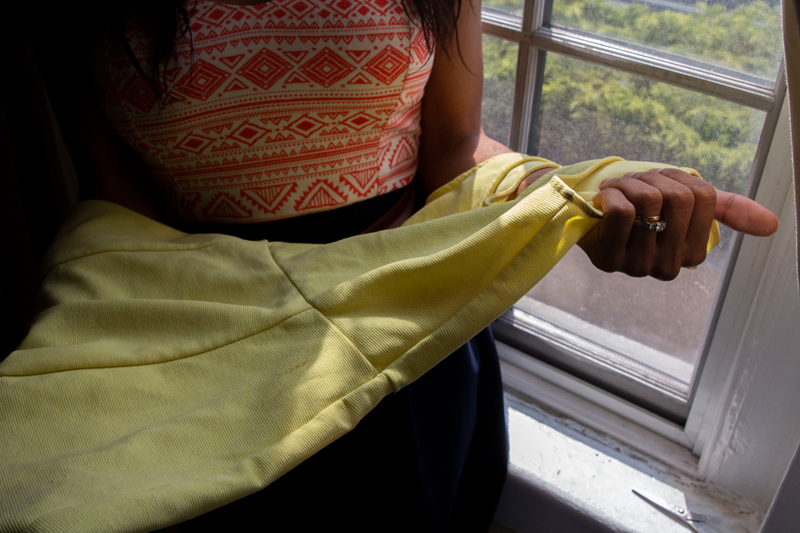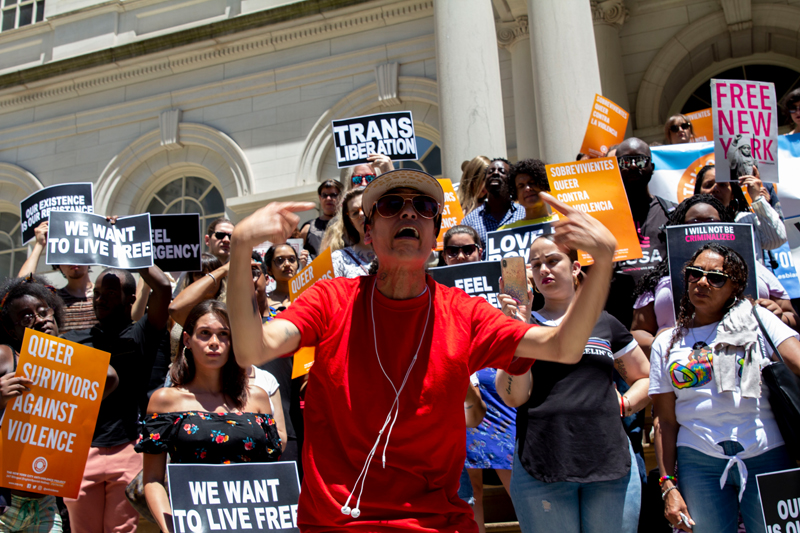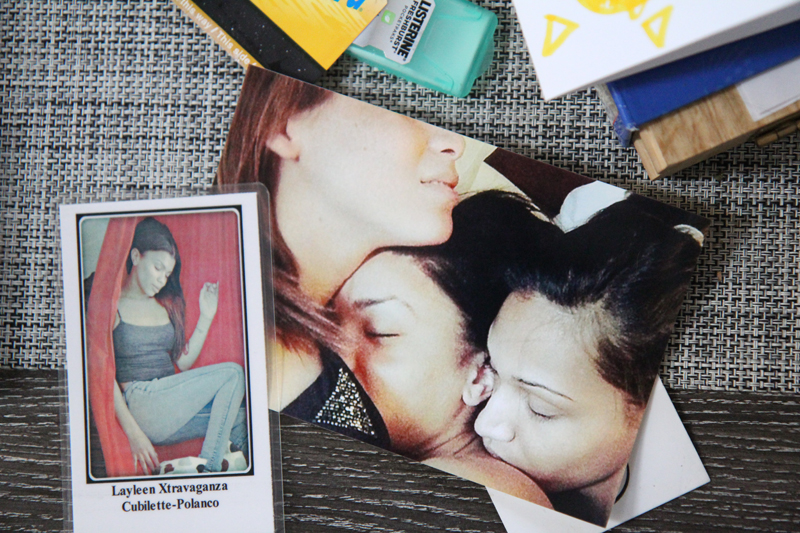NEW YORK — The first time Christina Vengerovsky met Layleen Cubilette-Polanco was on Christopher Street in the summer of 2010. Her friends had been talking about a girl in a yellow dress, saying there was no way that girl was trans.
“‘I gotta see this for myself. I'll be the judge,’” Vengerovsky recounted. “And then I see a girl in a yellow dress coming up. And I look past her.” Vengerovsky didn’t grow up knowing many trans people. She said then there was no way that could be the girl they were talking about.
 “We exchanged information, and she asked me if I had a mother figure. I told her I didn’t. And she decided to take me under her wing,” Vengerovsky said. The two became inseparable. “She taught me to be comfortable in my own skin. She taught me to love myself. She taught me to appreciate life.”
“We exchanged information, and she asked me if I had a mother figure. I told her I didn’t. And she decided to take me under her wing,” Vengerovsky said. The two became inseparable. “She taught me to be comfortable in my own skin. She taught me to love myself. She taught me to appreciate life.”
And now she can’t believe she’s gone.
On June 7, Cubilette-Polanco was found dead in her cell on Rikers Island. She was 27. She had been arrested for allegedly attempting to bite a taxi driver and was being held on $500 bail. She spent 52 days in jail, most of them in solitary confinement in the Rose M. Singer Center where trans women detainees are held. In 2017, she had been arrested for allegedly engaging in sex work.

Niamh McDonnell
Christina Vengerovsky holds the yellow dress Layleen Cubilette-Polanco was wearing the night they first met.
Her friends and family, still reeling from her death, are fighting to stop the cycle of violence typically faced by the trans community within the criminal justice system. Her death has become a rallying cry for those who want to reform the city’s Department of Corrections (DOC) and close the jails on Rikers Island.
Cubilette-Polanco was put in solitary confinement after she got into a fight with another inmate. According to the National Center for Transgender Equality’s 2015 report, trans people in jail face high rates of physical and sexual assault. Nearly one-quarter of respondents (23%) are physically assaulted by staff or other inmates.
Protest, lawsuit
Vengerovsky, along with Cubilette-Polanco’s mother and sister, attended a rally held on July 26 on the steps of City Hall in Manhattan. They joined activists from the New York Anti-Violence Project, Sylvia Rivera Law Project and VOCAL-NY to demand transparency and reforms from the mayor and New York City’s DOC.
“One of the questions that we asked of the mayor’s office and people representing the corrections department was what did they know about her medical condition and what could they tell us about why she was placed where she was placed,” said David Shanies, a lawyer representing the Cubilette-Polanco family. “But they told us we’re not going to get answers from them.”
The city medical examiner’s autopsy report, which took 53 days to produce, determined that Cubilette-Polanco died from a seizure related to her epilepsy. She had been treated at Elmhurst Hospital in Queens for more than a week during the time she was incarcerated.
Her family has now filed a federal lawsuit against the city, charging it with negligence.
“Layleen is dead because the City of New York and its DOC and Health + Hospitals / Correctional Health Services personnel failed to provide her safe housing, adequate medical care, and proper accommodation for her disabilities,” the lawsuit says.

Niamh McDonnell
Nancy “Nas” Marin, a member of the House of Xtravaganza, interrupts the rally outside City Hall on June 26. "We breathe the same air everyone breathes. We're human, we have feelings. We're like regular people. People don't see that. And the system — I think the system needs to get evaluated," she said.
By the City Hall rally, 26 organizations had sent a letter to Gov. Andrew Cuomo and Mayor Bill de Blasio demanding reforms for New York’s criminal justice system. One of their demands — to end solitary confinement on Rikers Island — was met, if only temporarily.
Closing the jails on Rikers Island and creating four new borough-based jails has recently been adopted as official city policy. The Close Rikers campaign, led by activists at JustLeadershipUSA, began three years ago as a mission to “decarcerate” the city’s jails and institute sweeping reforms in the criminal justice system.
‘Inspiring’
While Cubilette-Polanco’s death has come to signify the changes needed for New York City’s jails, family and friends want people to remember her for who she was in life. Vengerovsky, who struggled with being intersex, said Layleen helped her gain self-acceptance.
“It was very depressing, not being understood. I was suicidal — I had a lot of depression from it. I felt alone but she gave me confidence,” Vengerovsky said. “She's like, ‘You're so pretty. You just need to believe in yourself. How do you not know it?’”
Cubilette-Polanco’s kindness created a chain reaction that’s lasted into today. Vengerovsky said her friend essentially saved her life, which is now the reason she’s able to help others in return. “I had a daughter — I took a girl under my wing. She recently had a baby and she’s in a really good relationship. And it was because of everything Layleen taught me,” Vengerovsky said.
At Cubilette-Polanco’s wake, a painting of her stood on an easel next to her open coffin. Many in attendance wore matching T-shirts with her face on the front and the trans flag on the back. Hardly anyone wore black. Israel Kamakawiwoʻole’s “Somewhere Over the Rainbow” played on a loop while mourners, including members from the House of Xtravaganza, the queer house to which Polanco belonged, paid their respects.
“She was a humanitarian and an animal lover. She was a mentor, she was a mother figure, she was a great aunt. She traveled,” Vengerovsky said. “She was beautiful — inside and out. And that's who Layleen was. She was inspiring.”
